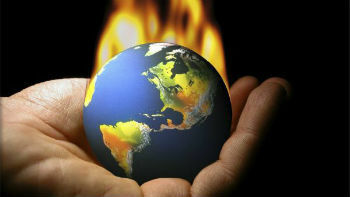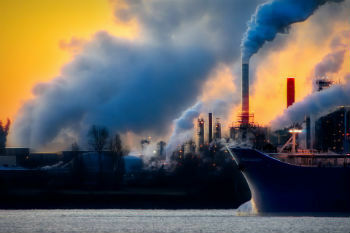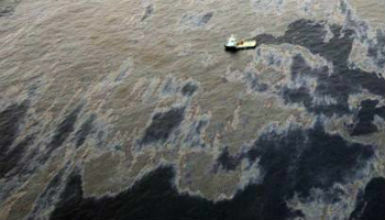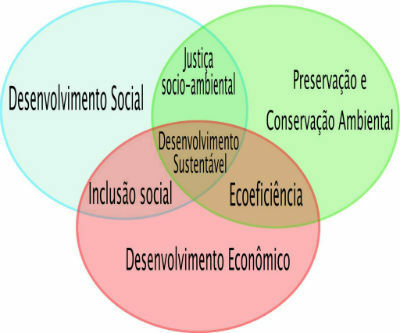Global warming corresponds to the increase in the average terrestrial temperature, caused by the accumulation of polluting gases in the atmosphere.
The 20th century was considered the warmest period since the last glaciation. There has been an average increase of 0.7°C over the last 100 years.
The Intergovernmental Panel on Climate Change (IPCC), the body responsible for studies on the global warming, believes that the scenario for the coming decades is of even higher temperatures tall.

A recent study from 2017 indicates that the chances of increasing average temperatures in the 21st century are 90%, to values between 2 and 4.9 °C. An increase of 2 °C would already result in serious and irreversible environmental problems.
Therefore, global warming is considered an urgent environmental problem with serious consequences for humanity.
However, the topic is still controversial. For some scientists, global warming is a hoax. They argue that the Earth goes through periods of cooling and warming, which would be a natural process.
Greenhouse Effect and Global Warming
The natural phenomenon of greenhouse effect it is closely linked to the climate changes taking place on planet Earth.
The greenhouse effect, although related to global warming, is a process that ensures that the Earth maintains the proper temperature for life. Without it, the planet would be very cold, to the point where many life forms do not exist.
The problem is the increased emission of polluting gases, the so-called greenhouse gases. they accumulate in the atmosphere and with that, there is a greater retention of heat from the Earth.
So how does global warming happen?
The increase in the concentration of greenhouse gases causes changes in heat exchange, with most of it being retained in the atmosphere. As a result, there is an increase in temperature, which causes global warming.
It is important to highlight that the increase in the emission of greenhouse gases is a result of human activities. This process began in the 18th century, with the Industrial Revolution and continues to this day.
Understand the relationships and differences between the Greenhouse Effect and Global Warming.
The greenhouse gases are:
- Carbon Monoxide (CO)
- Carbon dioxide (CO2)
- Chlorofluorocarbons (CFC)
- Nitrogen Oxide (NxOx)
- Sulfur Dioxide (SO2)
- Methane (CH4)
Learn more about Climate changes.
Causes
The main cause of global warming is greenhouse gas emissions.
Estimates suggest that greenhouse gas emissions as a result of human activities increased by 70% in the period from 1970 to 2004.
There are several activities that emit these gases, the main ones are:
- Use of fossil fuels: The burning of fossil fuels used in automobiles powered by gasoline and diesel oil releases carbon dioxide, which is considered the most responsible for heat retention.
- Logging: O logging in addition to destroying large areas of forest, it also releases greenhouse gases.
- burns: Burning vegetation releases significant amounts of carbon dioxide.
- Industrial Activities: The industries that make use of fossil fuels are also responsible for the emission of polluting gases. This situation comprises most of the emission of greenhouse gases in developed countries.
 Greenhouse gas emissions
Greenhouse gas emissions
Consequences
As we have seen, polluting gases form a kind of "blanket" around the planet. They prevent solar radiation, reflected by the surface as heat, from dissipating into space.
Global warming causes a series of changes to the planet, the main ones being:
- Change in the composition of fauna and flora across the planet.
- Melting of large ice masses in the polar regions, causing sea level rise. This could lead to the submergence of coastal cities, forcing people to migrate.
- Increase in cases of natural disasters such as floods, storms and hurricanes.
- Species extinction.
- desertification of natural areas.
- Droughts may be more frequent.
- Climate change could also affect food production, as many productive areas could be affected.
 Photo in Alaska that shows the difference of the landscape in the years 1909 and 2004
Photo in Alaska that shows the difference of the landscape in the years 1909 and 2004
The frozen regions are under greater pressure from global warming, due to the rise in temperature above the world average. The melting of the polar ice caps is already a reality and the negative impacts in the region can already be observed.
Animals that live in frozen regions and suffer from the consequences of global warming are the Penguin, a orca whale and the right whale. In addition, researchers point out that this is also a possible cause of the extinction of the mammoth.
Global Warming and Brazil
In Brazil, the main source of greenhouse gas emissions comes from the burning and felling of forests, especially in the Amazon and Cerrado. This situation makes it one of the most polluting countries in the world.
However, Brazil figures as one of the world leaders in discussions to reduce the effects of global warming. The country's greatest potential for reducing greenhouse gas emissions is reducing deforestation.
The concern with climate change is global. Therefore, several international agreements have already been signed with the objective of reducing polluting gas emissions.
O Kyoto Protocol is an international treaty signed in 1997 in the city of Kyoto, Japan. It is intended to warn of the increase in the greenhouse effect and global warming. For this, the countries committed to reduce the volume of gases released into the atmosphere, mainly carbon dioxide.
Learn more about the subject, read also:
- Environmental impacts
- Acid rain
- Ozone layer
- Heat Islands
- Paris Agreement



